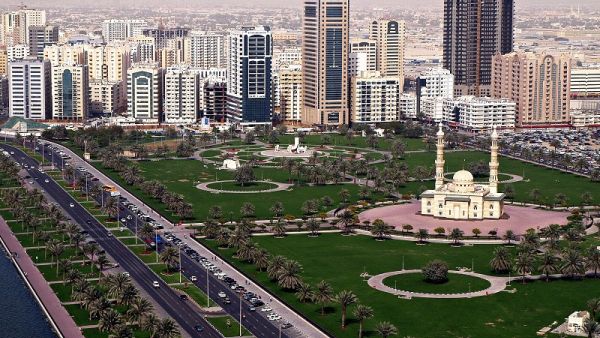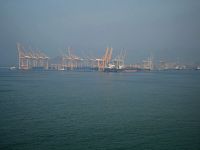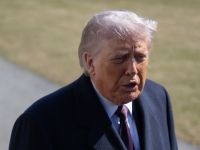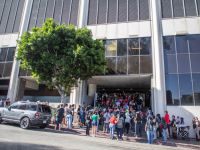Abu Dhabi will spend $346 billion in various sectors during 2013-2020, an official said.
Speaking at the UAE Outlook 2014, Shorooq Al Zaabi from the Department of Economic Development Abu Dhabi said that the emirate was expected to award $50 billion worth of new projects. In addition, the garden city of Al Ain will see a projects spree of $10 billion.
In 2013, Abu Dhabi announced a Dh330 billion development expenditure for 2013-2017.
The Abu Dhabi Municipality is planning to turn the capital into a smart city through 12,000 Smart Streets. The Abu Dhabi fund for Development’s capital size has already been doubled to $4 billion last year and its scope now includes the UAE, which will also see the development of education, health, water, irrigation and agriculture.
Abu Dhabi is expecting to see a slide in oil prices to $103 a barrel, down on the average $109 a barrel. The emirate is forecasting a gross domestic product of 4.3 per cent down from 6.6 per cent in 2013. The non-oil economic growth is forecast to grow to 11.2 per cent in 2014 from 10.3 per cent in 2013. Inflation will further ease to 1.6 per cent in the year from 2.2 per cent in 2013.
Meanwhile, Sami Al Qamzi, director general, Dubai Department of Economic Development, said that Dubai’s economy has proved its resilience and shown remarkable growth appetite in the last two years.
“GDP growth indeed accelerated in the years 2012-2013, averaging nearly 4.7 per cent per year, which was a good performance in view of persistent recovery problems in the EU and the slowdown in emerging countries,” he said.
The chief sectors leading growth in Dubai have been the tourism, trade, transportation, logistics and communication sectors; with construction and real estate lagging behind until recently. In the last two years, Dubai has consolidated its position as a regional hub for services and goods and a major destination for international visitors, leading to double-digit growth in the hospitality sector for the second consecutive year.
“We expect growth to remain steady, at about 4.7 per cent in 2014, with likely acceleration in the following years, as Dubai gears up for Expo 2020 and the global economic environment improves,” the director general said.
“Expo 2020 will indeed be a growth accelerator,” he added.
While Dubai is already recognised as an international hub for trade, investment and transportation, gearing up for the Expo will consolidate this position in the eyes of the local business community and potential international investors, Al Qamzi said.
As for the direct effects of the Expo, he said: “We expect the increase in investment, event-related infrastructure and other activities to accelerate the pace of GDP growth between 2015 and 2021.”
Dubai’s economic strategy aims at two objectives: expansion at a healthy pace and increasing diversification, which is the second theme the forum will address.
“It is through diversification and balanced growth that we can improve the economy’s resilience to external or sector-specific shocks. Dubai has made major strides in diversification, from a narrow trade base to a wide range of activities, mainly services but also manufacturing and real estate,” Al Qamzi said.
“The Government is keen to prevent any overheating in the real estate market and has already taken measures to discourage speculative behaviour and prevent undesirable effects on the banking sector.”
At the federal level, the Central Bank has strengthened macro-prudential regulation through caps on loan-to-value and debt-service-to-income ratios, while at the local level, the government has increased the fee on real estate transactions from two to four per cent.
“We expect such measures to be effective in discouraging speculation and encouraging long-term acquisition of real estate,” Al Qamzi said.
Over the years, the Government of Dubai laid the ground for diversified growth by investing in a world-class infrastructure that could support a wide range of activities. It also led development and showed the way to the private sector in many directly productive activities.
By Haseeb Haider








